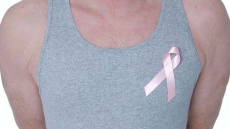Researchers from the University of Manchester in Britain have identified the effect of honey used since ancient times for the treatment of several diseases, on pathogenic fungi that can cause devastating infections in vulnerable people.
It was discovered that there is a powerful link between Surgihoney — a medicinal type of honey and the destruction of Fusarium — a fungus that can cause blindness or even death.
The researchers used different concentrations of Surgihoney, a biologically engineered honey that produces chemically reactive molecules containing oxygen, to test how effective it could be in destroying the fungus Fusarium, which is found on plants and in soil.
Even the lowest concentrations had a significant effect in breaking down the cell wall of the fungus, demonstrating its potential as a future treatment for patients, the study revealed.
Chronic infections, such as those found in long-lasting wounds comprise about 60-80 percent of infectious diseases in humans and the way fungi invades wounds is associated with the use of broad-spectrum antibiotics.
Biofilms — thin layers of micro organisms, which group together — contribute to the severity and delayed healing of such chronic wounds, the researchers said.
“Through my research I wanted to show the potential for honey as a healing agent to break through these biofilms and in doing so increase the process of healing. What I found amazing is that honey actually works better than some antifungals,” Zain Habib Alhindi, research student at the Manchester University said in an official statement.
The study opens door for further work on the application of honey for many fungal infections and allows scientists to adopt different options for treating a range of superficial infections, researchers concluded.




